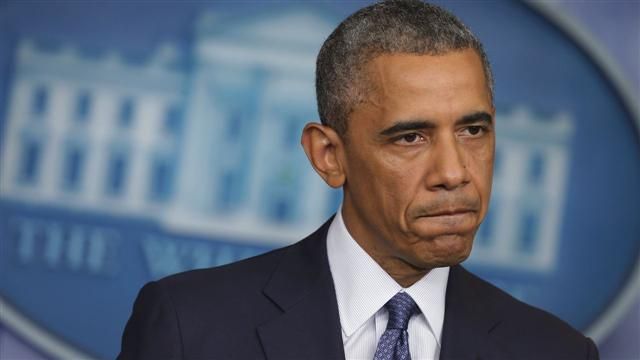
President Barack Obama has announced the US measures to combat the Ebola virus as he called the outbreak in West Africa “a threat to global security”.
“The world is looking to the United States,” Barack Obama said, but added the outbreak required a “global response”.
The measures announced included ordering 3,000 US troops to the region and building new healthcare facilities.
Ebola has killed 2,461 people this year, about half of those infected, the World Health Organization (WHO) said.
The announcement comes as UN officials have called the outbreak a health crisis “unparalleled in modern times”.
Among the measures announced by Barack Obama on September 16:
- Building 17 healthcare facilities, each with 100 beds and isolation spaces, in Liberia
- Training as many as 500 health care workers a week
- Developing an air bridge to get supplies into affected countries faster
- Provide home health care kits to hundreds of thousands of households, including 50,000 that the US Agency for International Development (USAID) will deliver to Liberia this week
Ebola only spreads in close contact but there is no cure and no vaccine. The outbreak began in Guinea before spreading to its neighbors Sierra Leone and Liberia.

Barack Obama said the outbreak had reached epidemic proportions in West Africa, as the disease “completely overwhelmed” hospitals and clinics and people were “literally dying on the streets”.
He called on other countries to step up their response, as a worsening outbreak would lead to “profound political, economic and security” issues.
There’s a “potential threat to global security if these countries break down”, he said, which would impact on everyone.
“The world knows how to fight this disease. We know if we take the proper steps we can save lives. But we have to work fast,” Barack Obama said.
Earlier, White House Press Secretary Josh Earnest said the 3,000 troops would not provide direct care to Ebola patients. Some soldiers would be stationed at an intermediate base in Senegal, while others will provide logistical, training and engineering support at locations in Liberia.
Also on September 16, a US congressional panel heard testimony from Dr. Anthony Fauci, director of the national Institute of Allergy and Infectious Disease, and Dr. Kent Brently, who recovered from an Ebola infection after receiving an experimental treatment for the disease.
Dr. Anthony Fauci told the committee 10 volunteers in a separate vaccine study had shown no ill effects from an early stage trial.
[youtube twtaXSZzn8k 650]